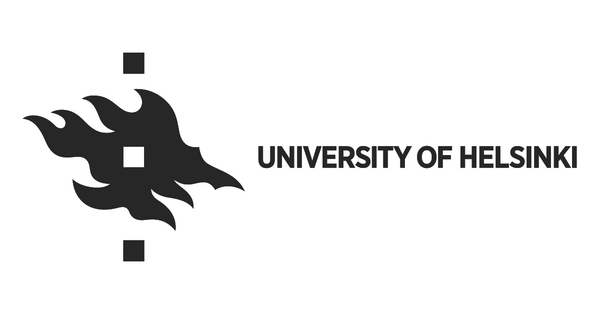University of Helsinki: Five things you should know about the sustainability transformation
1. Comprehensiveness as key
A transformation in sustainability means that, in order to maintain the carrying capacity of Earth, we have to bring about significant changes in, for example, food production, housing, energy production and transport – and do it fairly.
Putting this transformation into practice is not solely in the hands of politicians or ordinary people. Instead, the required outcome will be achieved only if action is taken in several areas at once: legislation, business and the lives of individuals. The overall goals of the sustainability transformation will become more tangible when the transformation is broken into its constituent parts.
For example, the transformation of the economy entails that the government uses its steering methods to manoeuvre business activities towards increasingly sustainable practices and the production of long-lasting products. Among other things, redesigning value-added taxation can help in making it less expensive to have a product fixed than to buy a new one.
In addition, sustainability has a strong link with urban planning. One strategy in this area is making urban structures increasingly compact, reducing dependence on motor traffic, promoting the development of public transport and helping in the reduction of fossil fuel consumption.
At the same time, compacting can engender challenges that conflict with the sustainability transformation. For example, preserving enough space for urban nature and the relaxation and recreation opportunities it offers poses a challenge.
2. Relinquishing fossil fuels
Fossil fuels are a significant cause of greenhouse gas emissions and global warming. Energy transformation, or energy transition is at the heart of the sustainability transformation, as we continue to greatly depend on fossil fuels in energy production, housing and transport. We must break away from this dependency as quickly as possible.
Disengagement from fossil fuels is promoted by, for example, increasing the scope of wind and solar power as well as the use of biofuels and the proportion of electric cars in use.
Government regulation, various subsidies, and changes in pricing are needed to make it more attractive and feasible for people to give up fossil fuels and recover energy in their everyday lives. The same goes for businesses.
As Finland’s subsidy policy continues quite heavily to support fossil energy sources (article in Finnish only), the energy transition is difficult for both communities and individuals.
“Research has shown that it’s not enough to encourage and inform people and promote positive action. To make the sustainability transformation happen, we must prohibit things that should not be done and encourage those that must be done. This is politically extremely difficult,” Professor of Environmental Policy Janne Hukkinen admits.
What is also difficult is that, in spite of existing or planned support measures, the sustainability transformation is not equal for everyone. Some people find their livelihoods harmed, while others must thoroughly or partially rethink the forms of their housing, mobility and free time.
At the same time, certain matters related to energy and its consumption are optional. Apartments must be heated by some means, but, whether or not to travel by air, for example, is a decision most of us can make ourselves.
3. Towards an increasingly plant-based diet
Our way of producing and eating food accelerates climate change, which, as it progresses, affects the available means of producing food. The strain put on the climate by beef is several times higher compared to plant proteins. It is necessary, therefore, to reduce meat consumption in Western diets. Instead of producing feed for animals that are farmed for meat, we should increase the cultivation area for fava bean and other protein-rich vegetables.
Each food product thrown away means wasted work and energy. The resources associated with the food chain and people’s personal finances will benefit when we more carefully plan our purchases and meals.
In food production and the food industry, the sustainability transformation means, among other things, that we are able to reduce energy consumption and adopt increasingly sustainable forms of energy. Practices are adapted so that no further harm is caused to nature and its diversity.
The waste generated by food production is reduced when the sidestreams of production are utilised more efficiently. This, in turn, is supported by innovations in research, which can even be used to produce novel food products from raw material previously thrown away.
Innovations can also bring about entirely new of foodstuffs. In the future, will I be munching on mycoprotein or bread, already in production, that naturally contains vitamin B12?
4. The old normal will not return
In times of energy crisis, many people may entertain the idea of putting the sustainability transformation on hold because of problems with electricity production and supply, continuing the pursuit of more sustainable practices later down the line instead.
According to Janne Hukkinen, there are no hopes for things quietening down, as a variety of chronic and creeping crises are here to stay.
“We are now in new circumstances and a new era where various crises related to, for example, the environment and energy are emerging one after the other. You cannot promote the sustainability transformation by, for example, relaunching coal-fired power plants to meet current needs in Finland and returning to transformation only when things get back to normal,” Hukkinen notes.
5. Research provides knowledge and tools for the sustainability transformation
A great deal of knowledge based on research is available on the sustainability transformation, including its background, implementation and effects. High-quality, multidisciplinary and influential basic and applied research continually produces more such knowledge.
At the University of Helsinki and among its partners, those focusing on the sustainability transformation include the Helsinki Institute of Sustainability Science HELSUS, research groups of faculties and other units as well as the Expert Panel for Sustainable Development.

